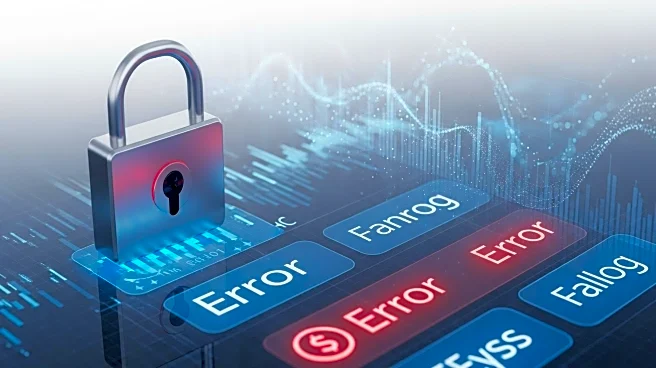What is the story about?
What's Happening?
European banks have experienced a significant disruption due to unauthorized direct debits initiated by PayPal. The German Savings Banks Association (DSGV) reported incidents involving these unauthorized transactions, which were caused by a failure in PayPal's fraud-checking system. The German newspaper Sueddeutsche Zeitung (SZ) estimated that payments worth approximately 10 billion euros were blocked as a result. PayPal acknowledged the issue and assured that the problem has been resolved, with payment transactions returning to normal. The supervisory authorities have been informed of the incidents, and PayPal is working closely with banking partners to update affected accounts.
Why It's Important?
The failure of PayPal's fraud-checking system has significant implications for the financial sector, particularly in Europe. Unauthorized transactions can undermine trust in digital payment systems and highlight vulnerabilities in financial technology. This incident may prompt banks and payment firms to reassess their security measures and fraud prevention strategies. The disruption also affects consumer confidence, as individuals and businesses rely on secure and reliable payment systems for daily transactions. The financial impact on banks and potential regulatory scrutiny could lead to changes in how digital payment systems are managed and monitored.
What's Next?
PayPal is expected to continue collaborating with its banking partners to ensure all affected accounts are updated and secure. Regulatory bodies may conduct investigations to understand the root cause of the system failure and prevent future occurrences. Banks might implement stricter security protocols and enhance their fraud detection systems. The incident could lead to increased scrutiny of digital payment systems and potentially influence regulatory policies regarding financial technology security standards.
Beyond the Headlines
This event underscores the importance of robust cybersecurity measures in the financial sector. It highlights the potential risks associated with digital payment systems and the need for continuous improvement in fraud detection technologies. The incident may also spark discussions on consumer protection and the responsibilities of payment firms in safeguarding user data and transactions. Long-term, this could lead to advancements in security technologies and a shift towards more secure payment solutions.















